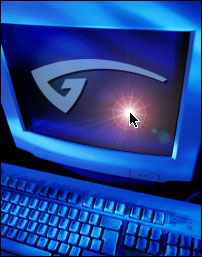A Revolutionary Concept?
I saw the primordial stirrings of a new kind of nation – the Digital Nation – and the formation of a new postpolitical philosophy. This nascent ideology, fuzzy and difficult to define, suggests a blend of some of the best values rescued from the tired old dogmas – the humanism of liberalism, the economic opportunity of conservatism, plus a strong sense of personal responsibility and a passion for freedom.
The online world is the freest community in American life. Its members can do things considered unacceptable elsewhere in our culture. They can curse freely, challenge the existence of God, explore their sexuality nearly at will, talk to radical thinkers from all over the world. They can even commit verbal treason.
-Jon Katz
Birth of a Digital Nation
• Are we living in the middle of a great revolution, or are we just members of another arrogant elite talking to ourselves?
• Are we a powerful new kind of community or just a mass of people hooked up to machines?
• Do we share goals and ideals, or are we just another hot market ready for exploitation by America’s ravenous corporations?
Cass Sunstein's opinion as written in republic.com:
"The Digital Divide is far more serious internationally, because it threatens to aggravate existing social inequalities, many of them unjust, at the same time that it deprives many millions (in fact, billions) of people of information and opportunities.
In 1998, for example, industrial countries, accounting for less than 15 percent of all people, had 88 percent of Internet users – with North America, home to less than 5 percent of the world’s people, having more than half of its Internet users.
In several African countries, the cost of a monthly Internet connection is as much as $100, ten times that in the United States. A computer would cost the average American about a month’s wage, whereas it would cost a citizen of Bangladesh over eight year’s income. In 2000, an astonishingly low 0.11 percent of the total Arab population had Internet access, at the same time when well over 50 percent of Americans, or 130 million people, had such access, with eighty million turning out to be active Internet users.
But as in the domestic context, that problem seems likely to diminish over time. Of course we should do whatever we can to accelerate the process, which will provide benefits, not least for both freedom and health, for millions and even billions.Many recent observers have suggested that, for the first time in the history of the world, something like a direct democracy has become feasible. It is now possible for citizens to tell their government every week if not every day, what they would like to do."
• Click to see the results of a survey in which 29 Notre Dame students and 26 Notre Dame parents stated their opinion regarding the Internet as a revolutionary concept.

Why the Internet is NOT Revolutionary...
"While cyberspace is new and sparkling with opportunity, it is not that new and that much sparklier than other technologies were on the eve of their creation."
-Debora L. Spar
Why the Internet Doesn’t Change Anything
"Patience, please -- the Net obviously won't change everything. Its power to transform will play out unevenly and in stages. Here's how..."
"Today's war against terrorism simply accelerates a pre-existing evolutionary cycle that is turning the Internet into a lean and powerful survival tool."
-Ed Zander
The Evolutionary – not Revolutionary – Net
"If for no other reason than this one, college students would be well advised to learn how to use these latest technological innovations, innovations so powerful that they could perhaps be characterized as potentially the most revolutionary since Gutenberg's invention."



